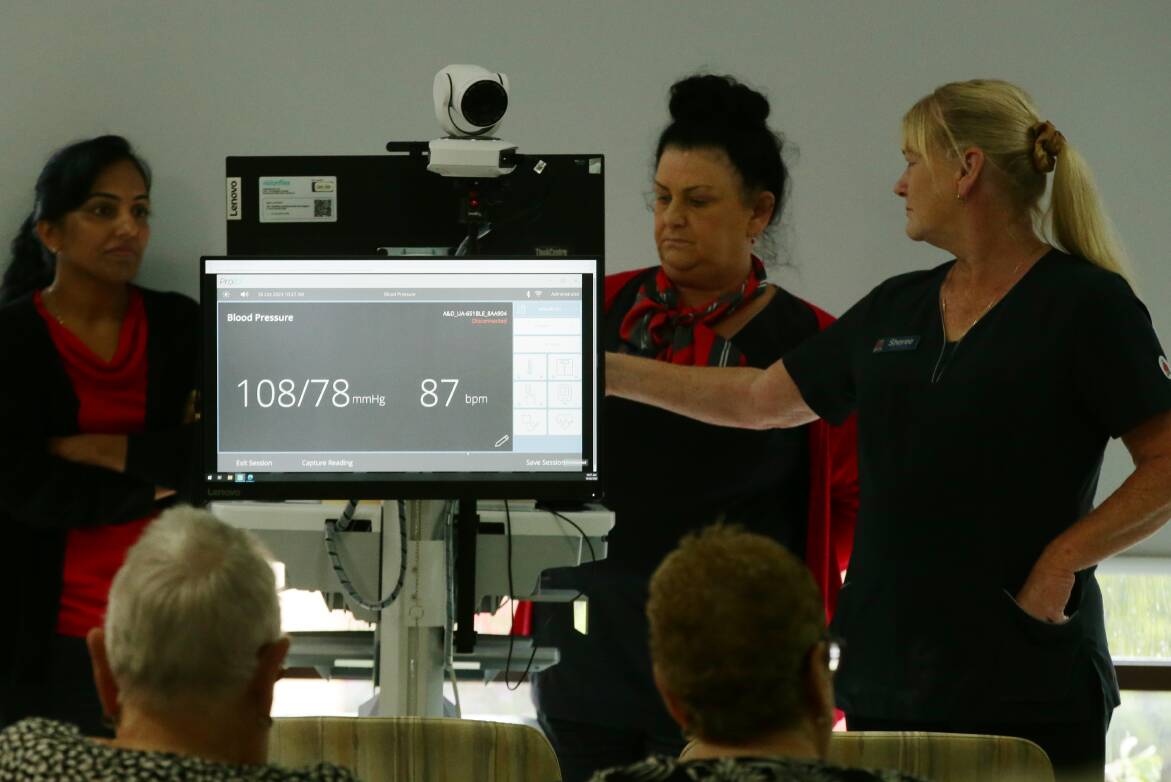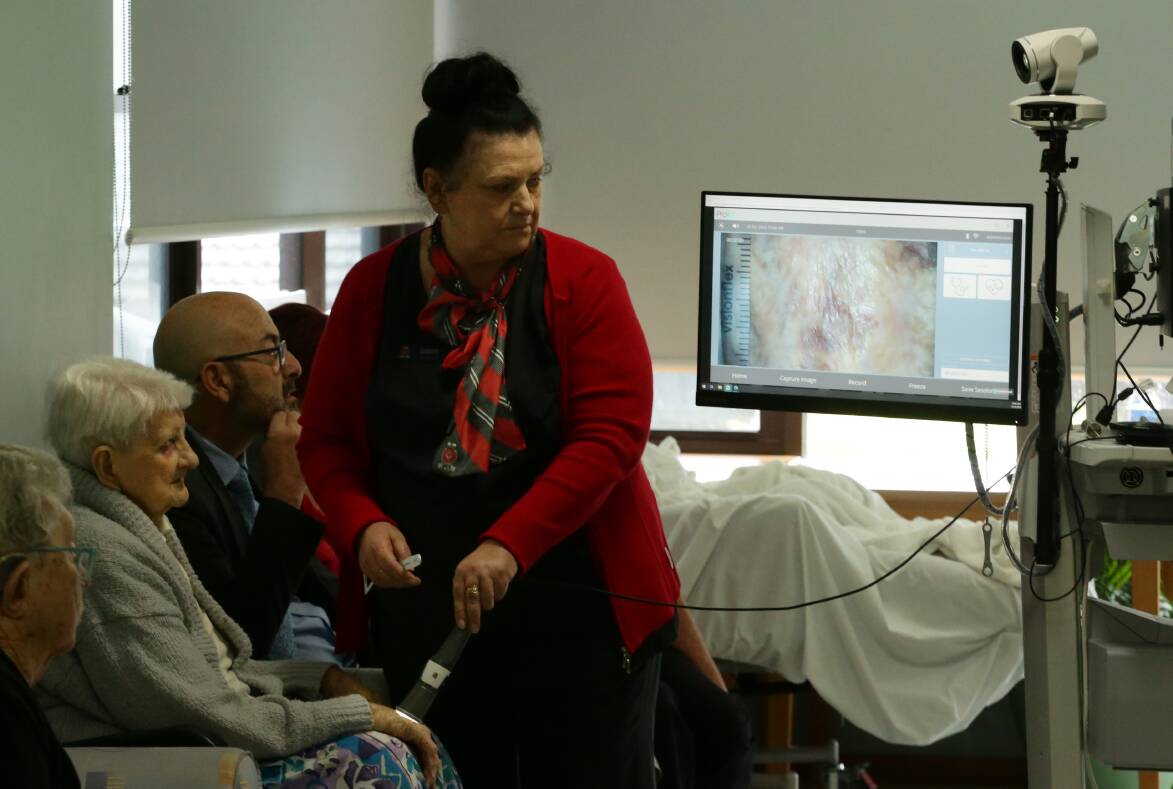


A new telehealth machine at an Edgeworth aged-care village will help ease pressure on the health system while saving time, money and resources, managers say.
RFBI Hawkins Masonic Village demonstrated its digital health service to residents, families and health professionals on Thursday.
The service involves "telehealth carts" that contain diagnostic equipment such as an ECG machine, pulse oximeter, stethoscope and blood pressure monitor.
Village care manager Sandy Maguire said staff could use the machine to check the condition of residents "having heart issues or a mini-stroke", for example.
Ms Maguire said the carts would be linked to GPs and specialists, providing a faster response to "patient care needs".
"We believe it will be a better outcome for residents due to the access they'll have," she said.
The telehealth sector became more prominent in the pandemic and analysts believe it has big potential for expansion.
More than 45 million telehealth services worth more than $2 billion in Medicare rebates, mostly for GP phone calls, were claimed in a year at the height of the pandemic, Australian National University research shows.
"There remains much to learn about the effectiveness, quality, safety, unanticipated benefits and risks of telehealth implementation," the research stated.
"Telehealth services that are considered clinically equivalent to in-person care are key to ensuring value for patients, practitioners and taxpayers."
Analysts estimate the nation's telehealth sector will be worth billions more by 2030.
The NSW Virtual Care Strategy, a government document, said "virtual care has the potential to be something far more comprehensive than our experience with COVID indicates".
"Innovations in technology are transforming how healthcare is delivered, particularly specialist services, providing patients with more choice about how and where they receive their care.
"As technological innovations become available, we also need to reassure patients and consumers that virtual care complements face-to-face care."
The Edgeworth village's telehealth carts - a Visionflex model - received funding from the Hunter's federal Primary Health Network.
The carts will store patient histories in one place, reducing consultation times.
Ms Maguire said they would improve efficiency, while saving time and money.
"If a resident is not well and you can't transfer them, then they won't miss out on that appointment. We can still do it while they're in-house," she said.
Village general manager Larissa Williams said the telehealth service would help staff manage challenges involving the "physical transfer of residents to attend appointments".
Many village residents face mobility issues.
"The biggest challenge we face is transportation when residents need to go to hospital, doctors' surgeries and specialist offices," she said.
"Some smaller facilities don't have wheelchair or stretcher access."
Transport often had to be booked in advance and escorting residents on these trips "can put a strain on resourcing".
"Residents can now receive care without having to leave the village and hold their appointments with staff they are familiar with."
Ms Maguire said the carts were also "good for families who live a long distance away".
They can be part of telehealth conferences and speak to the doctors and aged-care staff.







